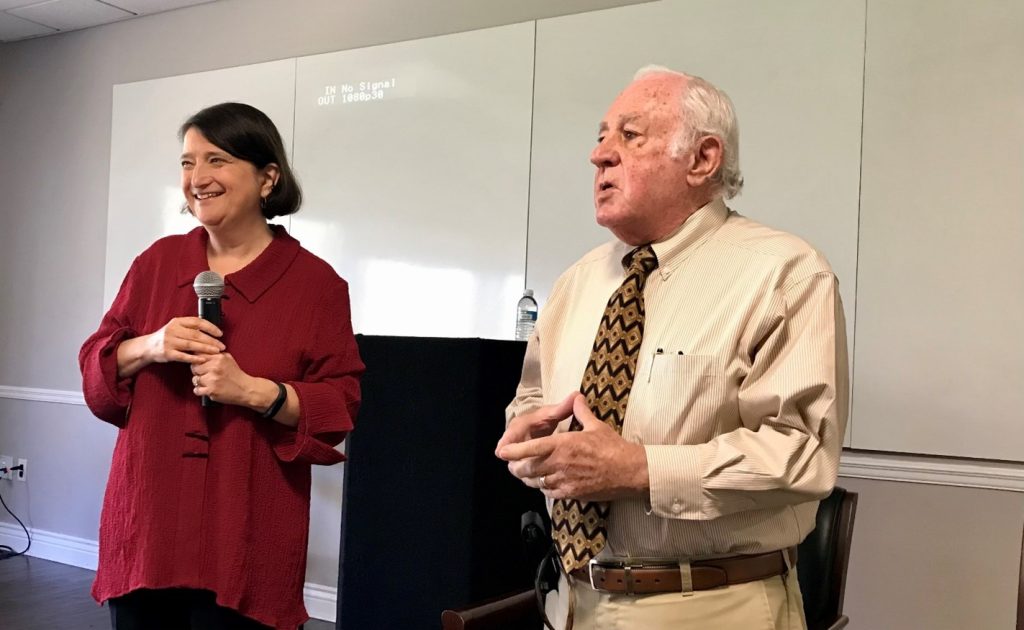The India Center Hosts Former Senior Diplomat

by PUJA SHANBHAG
The India Center at UCF recently hosted Katherine B. Hadda, a former United States consul general in Hyderabad, for a discussion about the growing relationship and involvement of India and the United States, as well as India’s role in larger international issues and regional issues. Within her lecture, Hadda specifically focused on defense, security, and the interconnected cooperative efforts of both countries in maintaining and bolstering relations.
With the strengthening of US-India diplomacy during the Obama Administration, Hadda started the lecture by echoing the words of former President Barack Obama, who stated during a visit with former Prime Minister Manmohan Singh, that the relationship between the United States and India “will be one of the defining partnerships of the 21st century.” This new focus on strengthening US-India relations has led to several information-sharing partnerships in defense such as the India Defense Technology and Trade Initiative (DTTI), President Obama declaring India as a Major Defense Partner (MDP), and the two countries conducting regular military and naval exercises. Due to this defense building partnership, India performs more military exercises with the United States than any other allied country in the world.
The shared defense information and exercises are an interesting trend for India, which normally stays unaligned during conflicts regarding Russia, China and the United States. Hadda expanded on this new trend by discussing the United States’ interest in bolstering India’s naval presence in the Pacific Ocean and how that impacts Chinese interests. She also discussed the potential consequences of a larger Indian presence in the Pacific Ocean, more specifically in terms of India’s own ties with Taiwan and how a more strategic and allied interest with the United States could bring further diplomatic tension with China.
Along with that, Hadda explored how more current events impacted US-India relations, most notably the 2022 Russian invasion of Ukraine, which she described to be somewhat of a “stress test” in diplomatic ties between India and the United States, because of their differing economic and historical relationships with Russia. However, even with tension and disagreements in some aspects of diplomatic relations during that time, the United States-India diplomatic efforts continued to develop and persist, largely unhindered by sanctions or diplomatic pressures. Even now, there is considerable bipartisan support of India in Congress, with the Congressional Caucus on India and Indian Americans being the largest country-specific caucus in the US House of Representatives.
Hadda also elaborated on how the strengthened defense relationship led to more successful ties between the US and India in other sectors. After the lecture, there was a Q&A session led by Dr. Robert Bledsoe, where Hadda discussed her time as senior consul general in Hyderabad and her continued work with India as Visiting Fellow with the Wadhwani Chair in U.S-India Policy Studies at the Center for Strategic International Studies.
